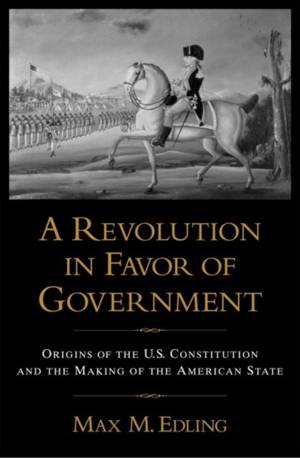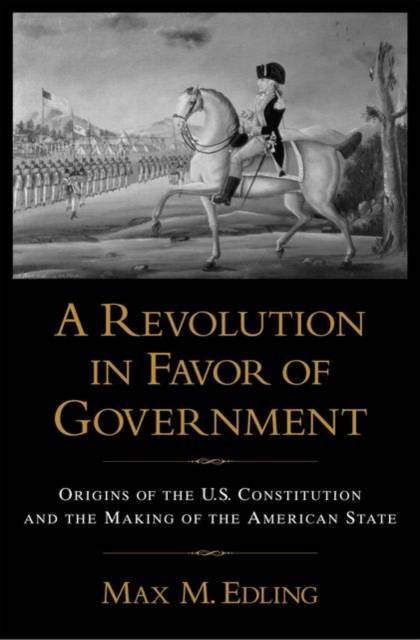
- Afhalen na 1 uur in een winkel met voorraad
- Gratis thuislevering in België vanaf € 30
- Ruim aanbod met 7 miljoen producten
- Afhalen na 1 uur in een winkel met voorraad
- Gratis thuislevering in België vanaf € 30
- Ruim aanbod met 7 miljoen producten
Zoeken
A Revolution in Favor of Government
Origins of the U.S. Constitution and the Making of the American State
Max M Edling
Paperback | Engels
€ 64,45
+ 128 punten
Uitvoering
Omschrijving
In this trenchant new interpretation of America's origins, Max Edling shows that the Federalists were primarily concerned with building a government that could act vigorously in defense of American interests. The Constitution transferred the powers of war-making and resource-extraction from the states to the national government, thereby creating a nation-state invested with all the important powers of Europe's eighteenth-century 'fiscal-military states.'A strong centralized government such as this, however, challenged the American people's deeply ingrained distrust of unduly concentrated authority. To secure the Constitution's adoption in the face of this inherent suspicion, the Federalists had to balance the formation of a powerful national government with the strong current of anti-statism in the American political tradition. They did so, Edling argues, by designing a government that would be powerful in times of crisis, but which would make only limited demands on the citizenry and have a sharply restricted presence in society. Taking advantage of a newly published letterpress edition of the constitutional debates, A Revolution in Favor of Government recovers a neglected strand of the Federalist argument, making a persuasive case for rethinking the formation of the federal American state.
Specificaties
Betrokkenen
- Auteur(s):
- Uitgeverij:
Inhoud
- Aantal bladzijden:
- 336
- Taal:
- Engels
Eigenschappen
- Productcode (EAN):
- 9780195374162
- Verschijningsdatum:
- 8/07/2008
- Uitvoering:
- Paperback
- Formaat:
- Trade paperback (VS)
- Afmetingen:
- 155 mm x 231 mm
- Gewicht:
- 458 g

Alleen bij Standaard Boekhandel
+ 128 punten op je klantenkaart van Standaard Boekhandel
Beoordelingen
We publiceren alleen reviews die voldoen aan de voorwaarden voor reviews. Bekijk onze voorwaarden voor reviews.











